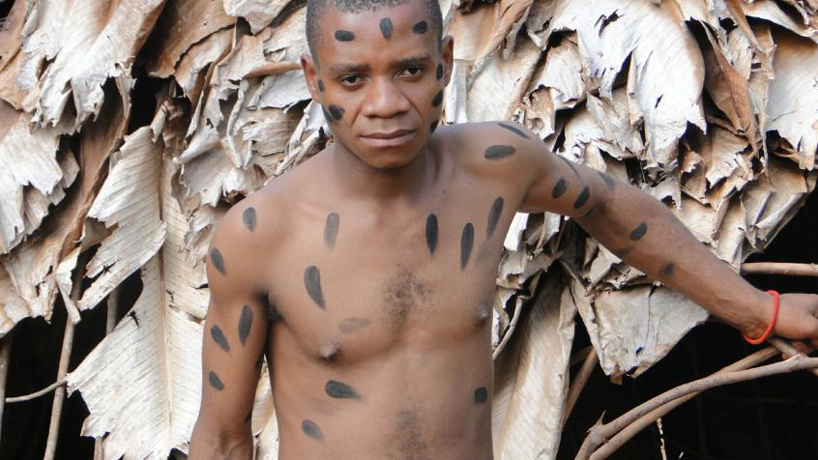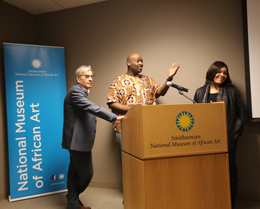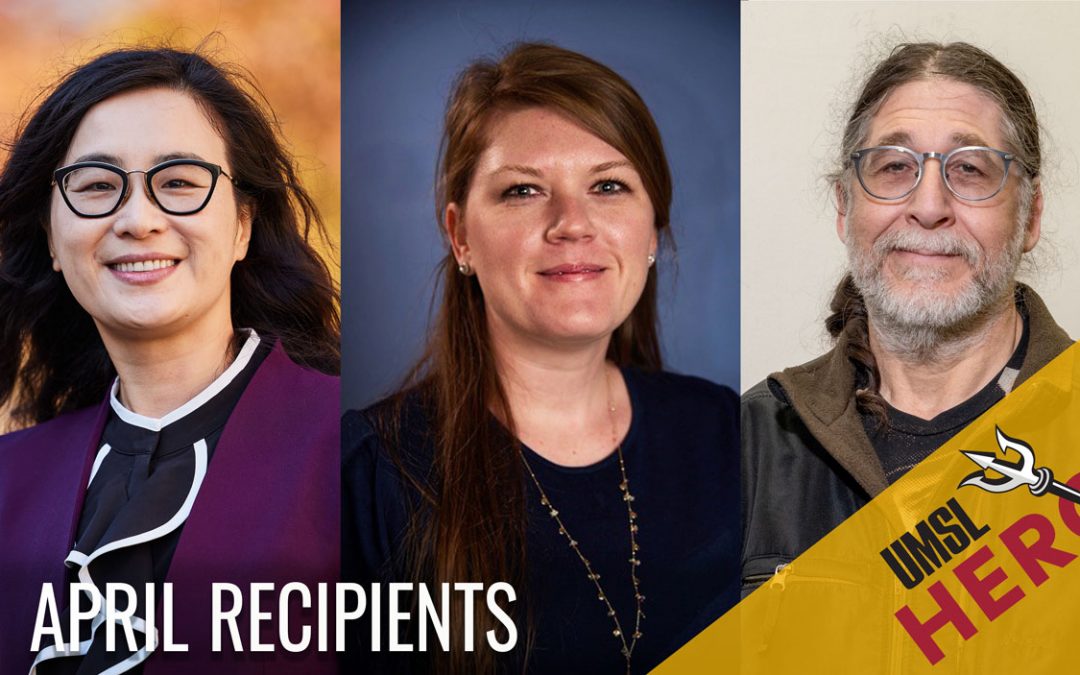
A publicity still from a new documentary directed by Niyi Coker, the E. Desmond Lee Endowed Professor of African/African American Studies at UMSL, depicts Ota Benga. The film’s subject, Benga, was caged with primates in the Bronx Zoo after appearing at the 1904 World’s Fair in St. Louis. The Whitaker St. Louis International Film Festival will screen the documentary at 7 p.m. Nov. 9 at the Missouri History Museum, 5700 Lindell Blvd.
The story of Ota Benga is a critical one that Niyi Coker knew had to be told.
Coker, the E. Desmond Lee Endowed Professor of African/African American Studies at the University of Missouri–St. Louis, decided to turn Benga’s life into a documentary.
“During the 1904 World’s Fair in St. Louis, Samuel Phillips Verner was commissioned by the World’s Fair organizers to import ‘Pygmies’ from Africa for display,” Coker said. “That is how Ota Benga arrived in St. Louis. At the end of the World’s Fair, he was traded to the Bronx Zoo, where he was caged with primates as living proof of human evolution from Apes. He was touted as proof of the ‘missing link.’”
Coker directed the 55-minute documentary, titled “Ota Benga.” The film recently premiered to standing-room-only crowd at the Smithsonian’s National Museum of African Art in Washington, D.C. and will now be featured at the Whitaker St. Louis International Film Festival at 7 p.m. Nov. 9 at the Missouri History Museum, 5700 Lindell Blvd.

UMSL professor Niyi Coker (center) discusses his documentary “Ota Benga” during a recently standing-room-only premiere at the Smithsonian’s National Museum of African Art in Washington, D.C.
The idea for the documentary came to Coker while he was teaching at the University of Alabama in Birmingham. He became close friends with a French filmmaker named Jean Bodon. The pair spent a lot of time debating the issue of race and racism in the United States.
After Coker joined the UMSL faculty in 2005, Bodon linked St. Louis to the Benga story.
“I was in disbelief,” he said. “Upon arrival in St. Louis, my first stop was the Missouri History Museum to seek out records of this tale. I could not fathom that in the 20th Century anyone would have the conviction that a human being belonged in a primate house with primates.”
Coker said Benga’s story motivated him, and he began researching and learning all he could about his life. Telling Benga’s story became crucial.
“Anyone hearing Benga’s story is always in shock and disbelief,” Coker said. “That was a major wrong that has never been made right. It needs to be rectified, and then there needs to be a major introspection about the implication of racial attitudes.
“The story does not end with Ota Benga’s demise. There are several incidents over time, post Ota Benga and even more recently where what can best be described as the ‘Ota Benga syndrome’ has been revived in towns and cities across the USA. There is a strong appeal to hit the pause button and to self-evaluate.”
Coker, a native of Lagos, Nigeria, is no stranger to the director’s chair or the film festival scene. He has served as director of professional theater companies in five countries. He’s directed more than 50 plays, among them the UMSL original musical “Booth!” about the effect an infamous assassin’s dastardly deed had on his family. He’s overseen documentary film festivals and playwriting competitions.
The 2015 Whitaker St. Louis International Film Festival, which runs through Nov. 15, will screen an unprecedented 447 films: 97 narrative features, 86 documentary features, and 264 shorts.
Media Coverage:
The St. Louis American














